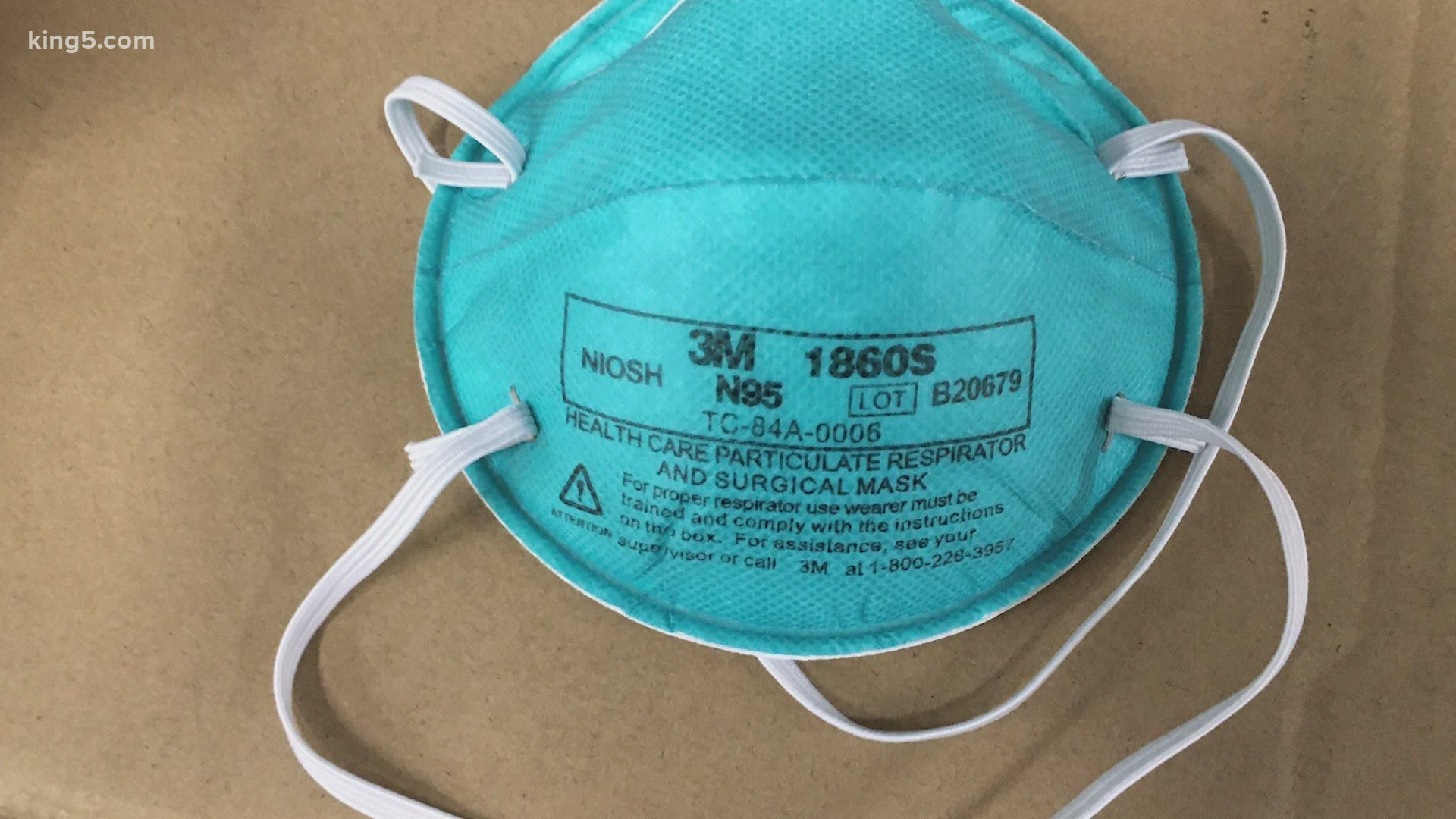SEATTLE — Federal authorities are investigating a massive counterfeit N95 mask operation in which fake 3M masks were sold in at least five states, including Washington, to hospitals, medical facilities and government agencies.
The foreign-made knockoffs are becoming increasingly difficult to spot and could put health care workers at grave risk for the coronavirus.
A federal official says these masks are giving first responders “a false sense of security.” Nearly a year into the pandemic, fraud remains a major problem as scammers seek to exploit hospitals and desperate and weary Americans.
These schemes deliver phony products, unlike fraud earlier in the pandemic that focused more on fleecing customers.
The Washington State Hospital Association (WSHA) said earlier this week that they purchased 300,000 of these counterfeit masks to distribute to their some 40 member hospitals. At least 60,000 of those masks remain in warehouses and were not sent to hospitals.
"It's a stunning feeling," said WSHA President and CEO Cassie Sauer on Sunday. "Just to think that there are people that will do that – out manufacturing counterfeit personal protective equipment that we need right now so badly during this pandemic."
The WSHA alerted hospitals last Friday that some N95 masks in their inventory could be counterfeit. Hospitals that were impacted were asked to pull the masks from their supplies while 3M investigated.
Virginia Mason Franciscan Health, which includes hospitals in the Seattle area, said it received the notice from WSHA and evaluated its inventory and discovered some of the system's supply did include the counterfeit N95 masks.
"Fortunately, none of the impacted inventory was put into use, and has been sequestered and reported for further investigation," said Cary Evans, vice president of Communications and Government Affairs for the hospital system in a statement. "At this time, we have sufficient personal protective equipment (PPE) to continue current operations, and we do not anticipate any supply shortages as a result of this issue."
Evans continued and said, "Actions that willfully impact the safety of health care workers on the front lines of this pandemic, and in turn the safety of our patients, are completely unacceptable."

